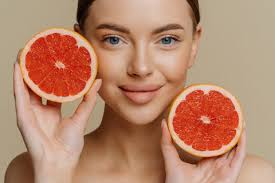Maintaining youthful skin is closely linked to dietary choices, as specific nutrients found in foods can play a pivotal role in combating the effects of aging. Certain foods are rich in antioxidants, vitamins, and essential fatty acids that support skin elasticity, hydration, and protection against environmental damage. Incorporating these anti-aging foods into your diet can enhance skin health from within, promoting a radiant and youthful complexion. Here is more information on some of the most effective foods for preserving and improving skin health:
Prioritizing Antioxidants
Fruits and vegetables are a well-known source of antioxidants, which help combat free radicals and are anti-aging. Free radicals are unstable molecules that may accelerate aging and contribute to skin damage. Antioxidants neutralize their effects, which supports skin health.
Some antioxidant-rich produce includes blueberries, strawberries, and spinach. Blueberries and strawberries contain a high level of vitamin C, which is often associated with boosting collagen production. Collagen is the protein responsible for maintaining skin structure. Spinach provides antioxidants such as beta-carotene and lutein, which are believed to promote skin radiance. Consuming a variety of brightly colored fruits and vegetables delivers a broad spectrum of these beneficial compounds.
Consuming Healthy Fats
Fatty acids, particularly omega-3s, play a key role in maintaining skin elasticity and hydration. Omega-3 fats help form the building blocks of skin cell membranes, which retain moisture and promote smoother skin. Fatty fish such as salmon and mackerel are some of the most potent dietary sources of omega-3 fatty acids.
For plant-based options, walnuts, chia seeds, and flaxseeds are rich in alpha-linolenic acid (ALA), an omega-3 fatty acid. Including these foods in your diet can support skin hydration and may reduce redness or irritation associated with dry skin. Foods containing monounsaturated fats, such as avocados, contribute to healthy skin by providing vitamin E. Vitamin E acts as an antioxidant, further protecting skin against environmental stressors.
Hydrating Through Food
Proper hydration supports skin function and appearance as foods with high water content provide hydration while adding valuable nutrients. It is recommended to drink eight glasses of water per day, in addition to eating hydrating foods. Cucumber, watermelon, and celery are hydrating choices that also offer additional skin benefits.
Watermelon contains lycopene, which has antioxidant properties that may support skin health. Cucumbers, with their silica-rich peel, are often linked to improved skin texture. Celery offers a combination of water and small amounts of vitamin K, which contributes to maintaining even skin tone. Adding other hydrating foods like oranges, strawberries, or zucchini can further boost hydration while providing essential vitamins and minerals. Including these water-rich foods in daily meals complements an overall hydration strategy for maintaining youthful, glowing skin.
Learn More About Anti-Aging
A diet emphasizing antioxidant-rich fruits and vegetables, healthy fats, and hydration-boosting foods can promote healthy, youthful-looking skin. Consuming a variety of these nutrient-dense choices provides the essential building blocks for skin support, elasticity, and radiance. While dietary changes cannot fully prevent aging, they provide a strong foundation for skin health. To achieve the best results, combine these foods with proper skincare routines and hydration habits. A balanced approach can assist in maintaining a vibrant complexion that reflects long-term wellness.
- mylovelyfurryfriend discover expert tips on dog health
- Infectious Diseases Updates – Stay Informed, Stay Protected!
- Wegovy For Weight Loss – A Breakthrough in Managing Obesity!
- Emergency Medicine Forum – A Hub for Fast-Paced Knowledge, Support & Updates!
- Pediatrics Discussions – Insights, Challenges, and Expert Advice for Better Child Health!





Leave a Reply